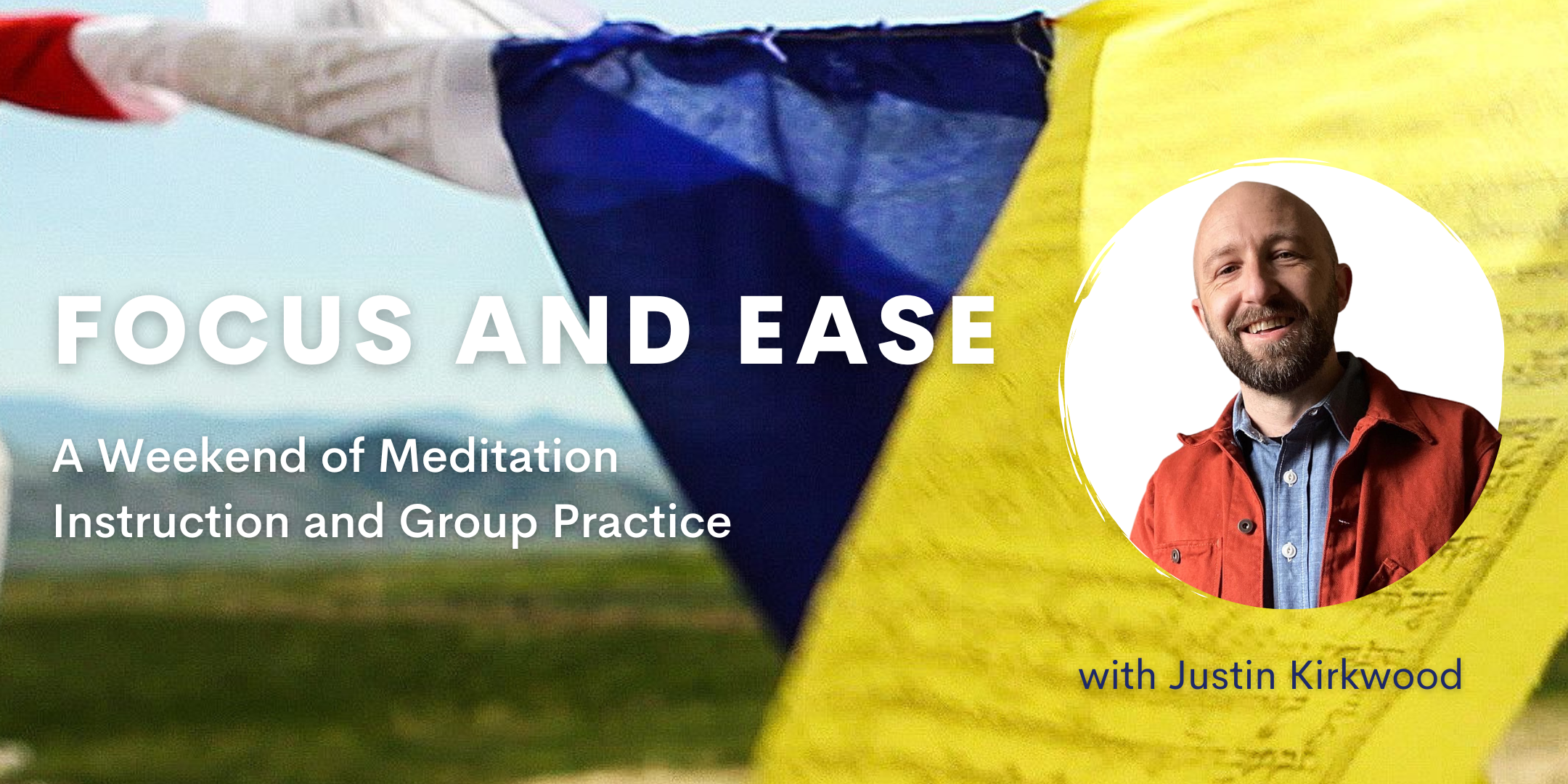From the moment we wake up until we fall asleep, our minds are working. How familiar are we with what’s actually happening in our minds? And how attached are we to the stories that our minds create? When our minds are unexamined, we are likely to experience stress, anxiety, emotional pain and so forth. When we familiarize ourselves with the happenings of our minds, we can uncover and rest in the peaceful state that is always available to us.
In this retreat, we will cultivate habits of seeing and relating to our own inner and outer worlds in a new way that bring us comfort and ease. We will discuss various types of meditation and their roles on the Buddhist path while focusing on the practice of Calm Abiding or Shamata.
Calm Abiding serves as the foundation for all other practices. It is a technique used to develop our power of attention and bring our thoughts to a peaceful state. Then we practice resting the mind in that state which feels like a vacation for our often scattered and distracted minds. Calm Abiding serves as the stable ground from which we can move into practices such as Vipassana (Special Insight) meditations on selflessness and emptiness.
What participants can expect:
- In-depth instructions and discussions on preparing to meditate
- Guided meditation practice sessions
- Ideas and advice about integrating meditation into daily life
Details:
Hybrid offering: In person in New York City at Home Studios , 873 Broadway, New York, NY 10010, and Online – Zoom link provided upon registration.
Zoom link will be provided upon registration. Please note: Confirmation emails from Eventbrite often end up in spam/promotions tab. Please check there if you do not see the confirmation email with the Zoom info.
Schedule: Join for one or all of the following sessions:
- Friday, 6pm – 8pm EDT: Setting Intention and an Intro to Calm Abiding Meditation
- Saturday 9:30am – 12pm; 2 – 4pm EDT: Intro to Calm Abiding Meditation: Instruction, Guided Meditation, and Q&A
- Sunday: 8-9am; 9:30am – 12pm; 2-4pm EDT. Community meditation sessions. Mostly meditation with some instruction. Come to any or all.
About Justin Kirkwood
Justin works as a Tibetan translator and Buddhist educator at the Namchak Foundation. He lived in the Tibetan refugee communities in India for eight years and studied in a Tibetan monastic seminary for three of those while keeping monastic vows. Justin has been translating for thirteen years and has been Namchak Khen Rinpoche’s primary translator for the last seven years. His traditional training, personal practice, and experience as a translator make him uniquely qualified to share these teachings in a way that is grounded in the Buddhist tradition while meeting students where they are with their unique interests and goals for meditation.
About Namchak
Namchak brings ancient meditation practices to modern life through online learning, in-person retreats, and a vibrant community guided by Tibetan masters and Western teachers. We support students on every step of the path, from those exploring mindfulness for the first time to more experienced students looking to deepen their practice. We offer a variety of learning programs, including in-person teaching, small group learning, online courses, and soon-to-be-established residential retreats at the Namchak Retreat Ranch in western Montana.
Tuition: Our intention is to make this workshop financially accessible to all, so we offer a tiered fee structure. Please choose whichever level works best for you.
If program costs present a financial barrier or you are interested in a stipend to offset the cost of childcare, please contact amanda@namchak.org.
- Friday: Free
- Saturday only: $25, $50, $75, $100
- Sunday only: Free
- Full weekend: $50, $75, $100
In order to co-create a brave, inclusive, anti-oppressive and learning centered space, in our community we each agree to:
- Be inclusive of diverse opinions and backgrounds through treating each other with respect and appreciation.
- Commit to words and actions of non-harm within our group interactions.
- Learn by immersing in these practices and giving them a real test drive.
- Hold personal sharing in confidence.
- Be present, practice mindful listening, and do not offer unsolicited advice.
- Allow and invite for equal sharing of voices as well as the right to pass.
- Take care not to speak for others in the group.
- Assume good intent and come from a place of curiosity and care.
- Come as we are with permission to be “raggedy.”
- Be mindful of and take personal and collective responsibility for our own biases including the use of language that may “other,” “cancel,” or dehumanize any person, groups of people, and/or their experiences.
- Use the “Ouch/Oops” tool to address hurtful comments and language in the moment and to allow space for repair.*
We aspire for this sangha to be a place of refuge
*Ouch/Oops . This is a tool for addressing hurtful comments/language in the moment. If someone says something hurtful, anyone can bring attention to it in the moment by saying “Ouch” and then explaining what was hurtful. If it is a word choice issue, be sure to give the first speaker the chance to rephrase and try again (remember, it’s okay to be raggedy, and we are all assuming good intent!) When someone says something that comes out wrong or hurts someone else, they should start with “Oops” – first, acknowledge the impact of their words, and then try again. This can also be done outside of the event if someone feels an “Ouch,” but does not feel comfortable sharing it with the group at that time. We aspire for this sangha to be a place of refuge.

